We now have free weekly Health Checks each Monday at George Street Church from 9.30am to 5pm. Checks include diabetic screening, blood pressure checks and more. All welcome.
‘Beloved, I wish above all things that thou mayest prosper and be in health, even as thy soul prospereth.’ 3 John 1:2
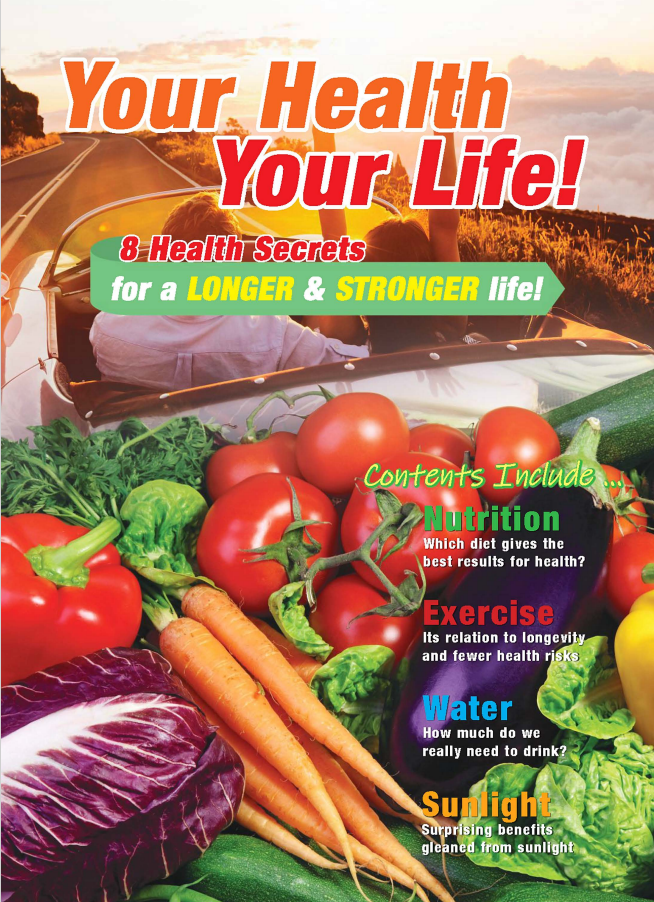
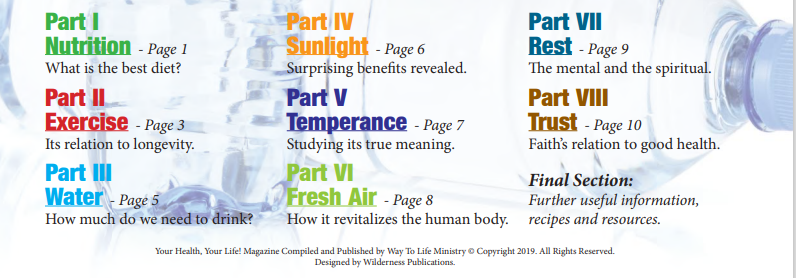
********************
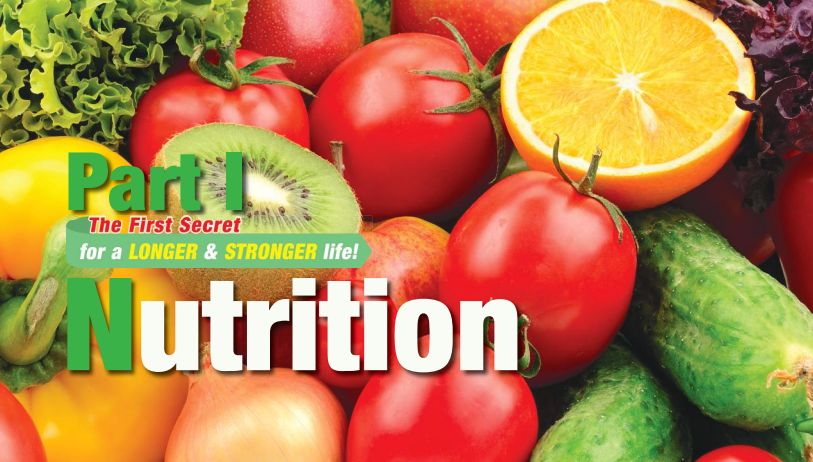
Eating more plants and less meat is becoming more popular than ever thanks to those celebrities in the news and the numerous books and documentaries being produced.
There are several reasons why it is good to adopt a plant-based diet.
A plant-based diet is defined by what it includes – such as eating more vegetables, fruits, beans, peas, lentils, whole grains, nuts and seeds instead of animal products and processed foods.
It is good for your health!
Research has shown that eating a very low-fat, plant-based vegetarian diet and other lifestyle changes could, in fact, reverse heart disease.
The Adventist Health Study-2 found that vegetarians have a lower risk of Type 2 Diabetes and high blood pressure. While about 50% of Americans will develop high blood pressure by the age of 60, research shows that populations that consume a diet comprised mostly of vegetables or who are vegetarian have ‘virtually no increase in hypertension with age’.
Eating red meat is associated with increased rates of cancer and heart disease. And the American Cancer Society recommends eating a healthy diet for the prevention of cancer ‘with an emphasis on plant foods.’
And compelling new research has found that eating meat causes the bacteria in the gastrointestinal tract to produce a compound that may increase the risk of atherosclerosis (clogged arteries).
90% of all conditions other than acute infections, contagious diseases and traumatisms are traceable to diet (Sir William Osler, MD, quoted in Foods, Nutrition and Clinical Dietetics, p. 13).
There is growing evidence that diet contributes to dementia and Alzheimer’s and that a diet low in fat can help prevent the onset of these illnesses.
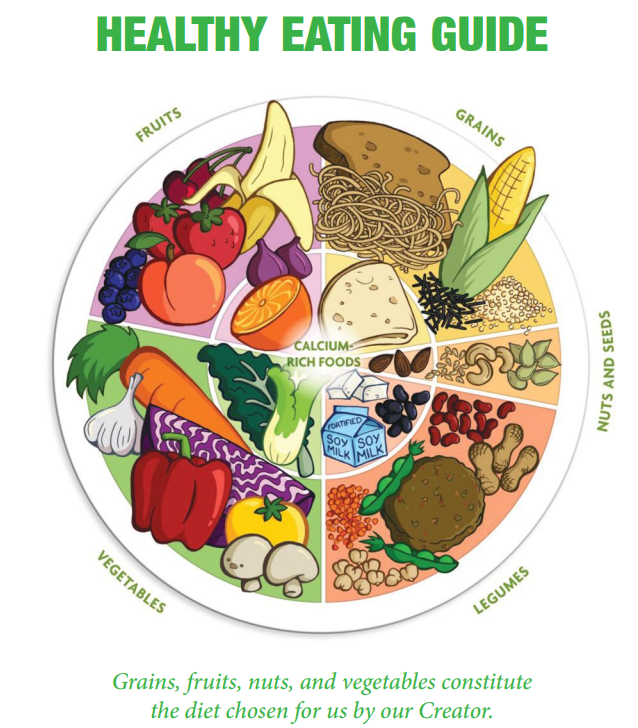
It is easy to lose weight
Plants are low in fat and high in fibre and therefore contribute to weight loss and ongoing weight management.
The traditional western diet leads to increased rates of obesity-related illnesses. 67% of men and 57% of women in the UK are either overweight or obese according to the Global Burden of Disease study, published in the Lancet medical journal. More than a quarter of children are also overweight or obese – 26% of boys and 29% or girls.
It’s good for the environment
Another strong argument for eating vegan is that vastly fewer resources are needed to grow plants for consumption than are used in the production of meat and dairy.
The production of meat and dairy is very resource-intensive and inefficient. Huge amounts of water and feed are required to raise livestock for meat and to produce milk – much more than what is required to grow fruits, vegetables and legumes for direct consumption. Furthermore, experts estimate that about 18% of all greenhouse gas emissions are a result of animal agriculture, which is more than produced by the entire world’s transportation industries combined.
Additionally, around the world, natural habitats and forests are being cleared at alarming rates to make grazing land for livestock.
It’s good for your bank balance!
With many, there is a want of knowledge as to how to prepare food in economical ways. Beans, peas, lentils are some of the cheapest foods you can buy along with fruits and vegetables being more economical than in the past.
********************
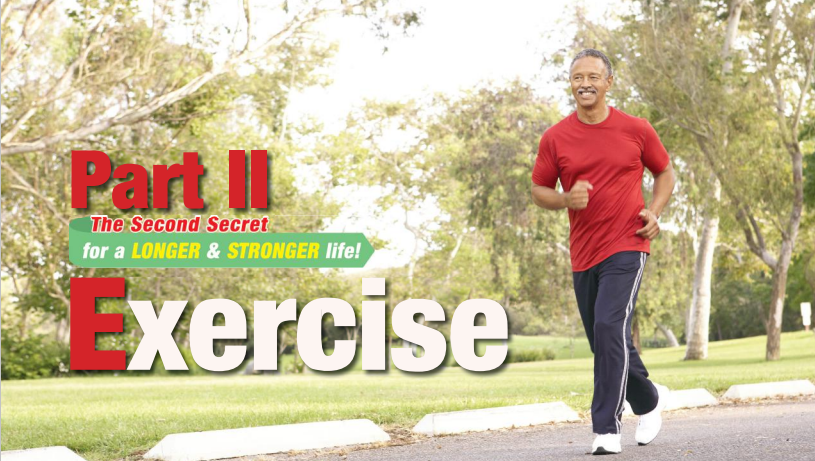
Regular exercise is an important part of a healthy lifestyle. People who lead an active life are more likely to live longer and less likely to develop serious diseases such as heart disease and diabetes.
Physical activity can ease the symptoms of certain long-term health conditions, such as rheumatoid arthritis and chronic obstructive pulmonary disorder (COPD).
Exercise not only improves your physical health, it also helps to reduce anxiety and lowers your risk of other mental health conditions such as depression.
People of all ages can benefit from doing some exercise. It’s important that regular physical activity is a part of life for children, adults and older people. It doesn’t have to be a vigorous workout and you can find ways to fit physical activity into your daily routine. It may be as simple as walking to and from the shops instead of getting in the car. If you have never exercised or haven’t for a while, it needn’t take much effort to get started.
After all, doing some physical activity is better than doing none at all. Even doing a little more exercise than usual can help reduce your risk of certain long-term health conditions.
Doing regular aerobic activity, such as walking, swimming or cycling, can help prevent a number of long-term conditions. Aerobic exercise is anything that involves moving your body’s large muscles repeatedly, such as running and swimming. Whether you’re just starting or have always been active, make sure you take steps to stay injury free and able to perform to your best.
Nutrition and hydration play key roles in this. It’s important to eat the correct foods to provide the fuel you need to exercise, as well as drinking enough water to keep you hydrated.
Some of the health benefits of aerobic exercise are described below.
Heart Health
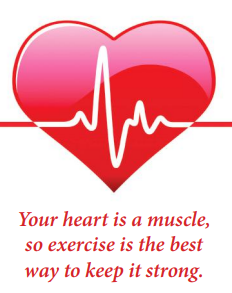
- Exercise can reduce your risk of heart disease and stroke. Every year in the UK, over 41,000 people die from stroke and nearly 74,000 from coronary heart disease. Inactive people have an increased risk of dying from heart disease.
- Doing regular exercise can help to reduce high blood pressure (hypertension). High blood pressure is common – three in ten adults in the UK have it. If you have high blood pressure, you’re more likely to have a stroke or heart failure. If you’re at risk of high blood pressure, exercising may mean it doesn’t develop as soon as it might if you don’t.
- You can help to improve the balance of your cholesterol by exercising. There are two types of cholesterol – low-density lipoprotein (LDL) and high-density lipoprotein (HDL) cholesterol. LDL cholesterol is sometimes called ‘bad’ cholesterol; HDL cholesterol is sometimes called ‘good’ cholesterol. High levels of LDL and low levels of HDL increase your risk of heart disease. But the good news is exercise is linked to higher levels of HDL cholesterol.
Bones and joints
- One in three people in the UK have lower back pain each year, but people who exercise are less likely to get it. If you have lower back pain, exercise can help to reduce it.
- Moderate activity, including walking, swimming and cycling, can help to treat and reduce pain caused by osteoarthritis. This is a common form of arthritis, with about 8.5 million people in the UK affected by the condition.
- Physical activity in younger people and children can increase bone mineral density and help to maintain strong bones. It also slows down bone degeneration later in life. Regular exercise can help to prevent osteoporosis – when your bones become brittle and more prone to breaking. But if you already have osteoporosis, it’s better to choose weight-bearing exercise, such as walking.
Cancer
- You’re less likely to develop certain cancers if you’re physically active. Your risk of breast and bowel cancer is about 25 percent lower if you’re active compared with people who aren’t. Some studies show that physical activity can reduce your risk of developing lung, prostate and endometrial (lining of the womb) cancers.
Diabetes
- Over three million people in the UK have diabetes, but doing physical activity can help to prevent the condition. Exercise is also beneficial in reducing other factors that put you at risk of developing diabetes, such as obesity.
- Exercise is good for you if you already have diabetes. Regular physical activity can help control your body’s sensitivity to insulin and lower your blood pressure.
Mental Health and Welbeing
- Exercise can help prevent and treat some mental health conditions. It’s thought that physical activity can reduce your risk of developing depression and dementia. It may also help to treat depression if you already have the condition.
- There is some evidence to suggest that exercise can help relieve stress and anxiety.
- You’re likely to feel happier, have an improved self-image and a better sense of wellbeing if you’re physically active. Introduce regular exercise into your routine and you may also be able to sleep better.
Weight
- Doing regular exercise can help you to manage your weight. Physical activity burns up calories and helps to create a healthy energy balance. Exercise is essential for everyone for maintaining a healthy weight.
- You’re less likely to be obese if you’re active. Physical activity may help you lose weight if you’re overweight or obese. But even if it doesn’t help you lose weight, exercising is still beneficial for your health. You may find that combining exercise with a healthy diet is more effective at helping you lose weight.
Children and Exercise
- With two in ten children and adolescents in the UK now classed as overweight or obese, it’s more important than ever to get children active. Physical activity in childhood has a number of benefits. It stimulates the development of the muscles, bones and joints, as well as the heart and lungs.
Exercise also helps children maintain a healthy weight and gives them an opportunity to interact with other people and make friends.
Activities that put stress on children’s bones, including jumping and running, can help protect against osteoporosis in later life and maintain strong, healthy bones.
********************
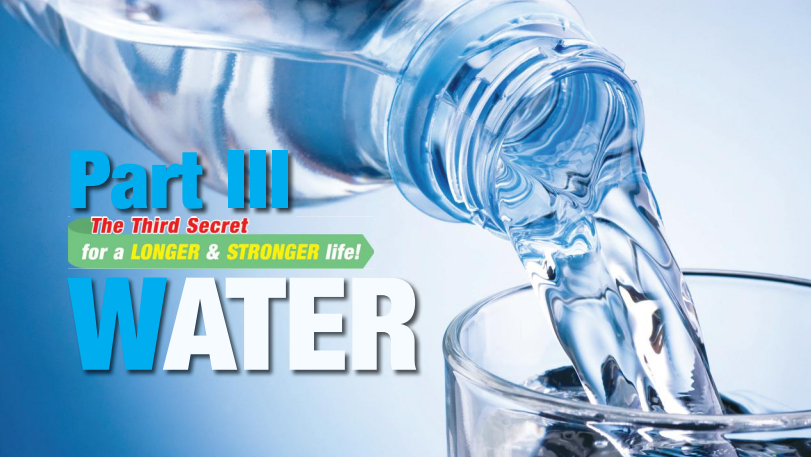
Water is an all-purpose cleanser both inside and out of the body. It is an abundant and effective agent for washing away dirt, germs, and bacteria. All our tissues, vital fluids, and secretions contain a large percentage of water. Water is of great importance in maintaining health. It is the basic component of all existing things.
A glass of water acts as a bath for the digestive system, cleansing and refreshing it. If we could follow the stream of water into the hidden places of our bodies, we would see it washing away the poisons in the blood that are circulating through the kidneys. The kidneys must work harder if the body doesn’t get enough water.
All the chemical processes by which the body operates require an adequate supply of water in order to keep the body functioning at peak efficiency. If water is not made available, the body consequently suffers and cannot do its work properly.
A lack of water dehydrates the fluids, tissues, and cells of the body. It causes the blood to thicken, increasing the risks of stroke and heart disease. Dehydration can mimic hypoglycaemia, causing headaches, tiredness, and fainting spells.
When you don’t drink enough water, serious complications can arise. Your hydration needs depend on exercise, diet, age, body fat, altitude, pregnancy, medications and the weather.
Our brains depend on proper hydration to function optimally. Brain cells require a delicate balance between water and various elements to operate, and when you lose too much water, that balance is disrupted. Your brain cells lose efficiency.
The body loses at least ten cups of water every day. We need to drink at least six to eight glasses each day to replace the difference.
Pure plain water is the best way to replace the fluid you need. Many sugar-laden beverages actually result in a loss of water from the system, because it requires more water to metabolize the sugar in a drink than the drink itself provides.
The best time to drink water is between meals – 20 minutes before a meal, and not until 2 hours after a meal – to obtain maximum digestion of your meal. Not drinking with meals is best for optimal food digestion.1
1. https://amazingdiscoveries.org/amazing-health-home
********************

More often than not, sunlight gets some pretty bad publicity! The impression has been given that even small amounts of sun are harmful. While it is true that excessive sunlight can increase the risk of skin cancer and cataracts, sun in moderate amounts has many benefits. It is thought that 10-30 minutes of midday sunlight several times per week is sufficient. For darker skinned people, they will need a little more than this.
Without sunlight, life as we know it could not exist. Fruits and vegetables that receive the direct rays of the sun grow much better than those that are exposed to artificial light. This also applies to humans. Those that do not get a sufficient amount of sunshine experience poorer health. Those who are daily exposed to the vitalizing effect of the sun’s rays have a ruddy complexion and more vibrant health. Sunshine is the most natural and effective antiseptic available to us. Sunshine is also one of the most effective healing agents known. Energy from the sun’s rays also acts on certain substances in the skin, changing them to vitamin D, one of the essential vitamins to the body.
Sunlight keeps our blood warm and pure and supplies life-giving energy to every organ of our bodies. Our brains are fed by sunshine-enhanced blood; our body is strengthened by the sun’s energy.
Here are other wonderful benefits of sunlight:
Sunlight converts cholesterol into vitamin D, lowering the blood cholesterol. Vitamin D provides a host of advantages to the body, including prevention of many types of cancer and better calcium absorption, which in turn helps prevent osteoporosis and tooth decay, makes stronger denser bones, and speeds bone repair.
Sunlight kills many germs and enhances the immune system by increasing gamma globulin, and raising the number and effectiveness of the white blood cells which destroy germs.
Sunlight soothes the nervous system and is important in treating depression. It gives a sense of well-being by increasing endorphin production in the brain.
Sunlight strengthens the cardiovascular system. It improves the circulation, lowers the heart rate, and normalizes the blood pressure and blood sugar.
Sunlight aids in digestion and weight loss, increasing the metabolism by stimulating thyroid production.
Sunlight improves sleep. Natural light exposure in daytime increases melatonin output at night.2
2. http://amazingdiscoveries.org/amazing-health-home
********************

To most people, the word ‘temperance’ means either ‘abstinence from alcohol’, or ‘moderation in all things’.
Temperance is a God-given sense to use all He has given us, only as He directs. All of our appetites and desires come under the control of true temperance; this is the real challenge.

Our culture is out of balance. For example, many eat until they can barely get up from the table. The adult stomach will comfortably accommodate only one quart of food and drink. Eat more than this, and it will stretch abnormally large. Blood supplying the needs of the body, especially the brain, will divert to the stomach for a prolonged period. This results in a sleepy feeling after a big meal. This also leads to becoming cranky, tired or not being able to think clearly; temperance would prevent all this.
More than our physical appetites, temperance deals with our minds and morals. Many believe trying everything once is practicing temperance – but many things are a sin to try even once, such as brain-destroying drugs or promiscuous sex. Practicing temperance rewards us with mental and moral vigour.
For healthy living, we must abstain from everything God says is harmful, using what is beneficial only as far as God instructs.3
3. http://amazingdiscoveries.org/amazing-health-home
********************

The human body must have oxygen; each of its 100 trillion cells must receive steady, fresh supplies to survive. Every day, you take more than 17,000 breaths to keep your body fuelled. The heart sends blood to the lungs where it drops off carbon dioxide for elimination and picks up fresh oxygen for delivery to every cell in the body.
Fresh air has many health benefits. It improves the brain’s ability to function, gives clarity to the mind, improves concentration, and boosts learning abilities. It gives a sense of happiness and well-being by altering brain levels of serotonin. It promotes quality sleep, and kills bacteria and viruses in the air. Pollution causes air to lose these capabilities.
Supplying the body with pure air is important enough to determine the difference between health and sickness – between life and death. It’s almost unbelievable how many homes are poorly ventilated, stuffy, and ill smelling. Even offices and hospital wards lack fresh air, mainly because of the controlled air systems, and the windows that are structured to remain closed permanently. Oxygen makes all processes of life possible.
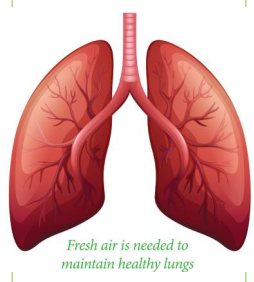
One of the function of air in the body is the burning up of waste products that are constantly forming in the body cells. When the supply of air is sufficient, waste matter is disposed of efficiently.
Air is a colourless, sluggish gas. Ninety people out of one hundred are under the impression that all that is necessary for proper ventilation is to have a window in a room open. This is a mistake, for air is a very sluggish substance.
If the wind happens to be blowing from any other direction but that in which the window is facing, the air in the room will be stagnant, and the constant exhalations of the occupants will make the air poisonous in a few hours; there must be circulation.
Fresh, pure air is the most vital requirement for those who are sick, as well as those who are well.4
4. http://amazingdiscoveries.org/amazing-health-home
********************
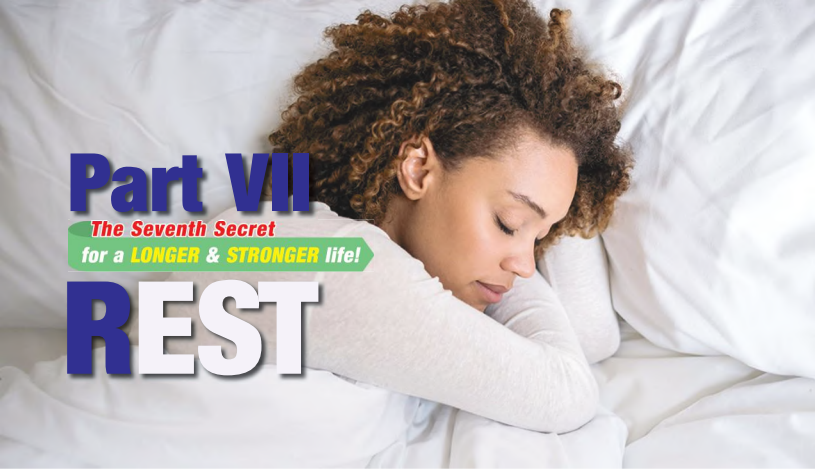
The right quantity and quality of sleep is vital to a healthful lifestyle. Rest is a condition wherein the human body is permitted to heal and reabsorb the natural forces that it has lost through the use and abuse of the body and mind.
It is impossible to grow either physically or intellectually without rest. Work is an energy expending process. Rest following work is a building up and growing process. In these days of speed we seek concentrated excitement, concentrated activity, and concentrated business. We are constantly trying to beat time – to do more work in less time.
This may make for worldly gain but it surely does not make for growth. Instead it tends to dwarf us, sapping our power. During the day the chief work of the body is done, but during the night, the body is revived, the muscles are built up, the brain tissue is restored, and the nerves are recharged. For growth and health, a sufficient amount of leisure and rest is essential
When the body is deprived of sleep, it is unable to rebuild and recharge itself adequately. There is an increase in irritability, while creativity, concentration, and efficiency suffer. Sleep deprivation impairs judgment, causing values and priorities to change. Continued loss of sleep can result in exhaustion and depression. Losing as little as three hours of sleep in a single night can cut the effectiveness of your immune system in half.
Slowed reaction time and decreased concentration lead to an increase in car accidents. As many as 30% of fatal automobile accidents are caused by a driver falling asleep at the wheel. In a classic health study, it was found that people who regularly slept seven to eight hours each night had a lower death rate than those who slept less than that.
Nine tips for improving sleep quality …
- Follow a regular exercise programme.
- Don’t eat a heavy evening meal.
- Have a regular sleeping schedule. Go to bed at the same time and get up at the same time, including weekends. Studies show that the most efficient sleep occurs between 9.00pm and 12.00midnight.
- Before bedtime, relax your body and mind. Take a warm bath; drink a cup of herbal tea; enjoy some quiet reading or soft classical music.
- Avoid stimulants like the computer, television, tobacco, and caffeine.
- Avoid upsetting arguments, conversation, and confrontations in the evening.
- Refrain from alcohol: Alcohol interferes with the body’s ability to rebuild itself while you are sleeping.
- Prepare a cool, dark, comfortable, tidy, and quiet sleeping area with an abundant supply of fresh air to soothe the body and encourage rest.
- Take time to be thankful.5
5. http://amazingdiscoveries.org/amazing-health-home
********************

What do faith, religion, and trust in God have to do with health? Everything!
Research has shown that spirituality helps to control stress, strengthen the immune system, and protect against heart disease and cancer. Beyond these benefits, God promises eternal life to those who trust Him – a life of perfect health and freedom from pain, fear, and death.
But can we trust God? Does He even exist? And if so, does He care about us personally? Before you can trust anyone – God or human – you have to get to know them, observe their personality and character, communicate and interact with them, and consider how they treat others. Before you can trust God, you need to become acquainted; talk, listen, and work with Him; investigate how He deals with His children. He longs to develop a close personal relationship with you. He invites you to come to Him on a daily basis and learn of Him.
Ask God to give you spiritual insight so that you may hear and understand what He is saying to you. Here are some of the more common ways God speaks to us:
Through the Bible
This Book is God’s disclosure of His own character and His love for humankind. He reveals the true story of the conflict between Himself and Satan and how it has played out through history. It is also the original true source for knowing Christ.
Through the life of Christ
God sent His Son into the world so we might have a clearer picture of His personality and character. Christ’s life of compassion, courtesy, and service to others here on this earth culminated in His death on the cross, the most vivid portrayal of God’s love ever seen.
Through nature

God created the wonderful and beautiful things of nature for the happiness and well-being of all His creatures. His love and wisdom can be seen in His created works. Though the earth bears evidence of the curse of sin and only dimly reflects the Creator’s glory, His object lessons are still present. Nature still speaks of her Creator; imperfect and blighted though she may be, God’s craftsmanship may still be recognized.
Through Providence
God intervenes in our lives. He leads, cares for, and protects us. If you look back over your life you may be able to recognize some of the times when He has worked to get your attention and tell you He loves you.
What about the trials of life?
Where is God when the world is falling apart? Always look at trials through the lens of Calvary. God’s love for you was proven at the cross. ‘But God, commendeth his love toward us, in that, while we were yet sinners, Christ died for us’. (Romans 5:8)
He can never act towards you in a way other than in love. This divine love combined with His perfect wisdom and unlimited power insures that His decisions are always right.
God invariably leads His children as they would choose to be led, if they could see the end from the beginning.
If God is so loving and wise, why do bad things happen to good and innocent people? There are many reasons why bad things happen to good people. Here are a few of the factors that may be at work:
Because of our own choices
God does not force His will on anyone. He respects each person’s right to choose whether or not they will obey Him and follow His will by doing as He directs. He lets us experience the results of our own choices.
Because of the choices of others
We all influence each other. The poor choices of our parents, civil leaders, et al., affect our lives adversely. The innocent suffer from other people’s faulty decisions.
Because of the violation of the laws of nature
Objects fall, ice is slippery, and machinery fails. When the physical laws that govern our world are broken, accidents happen, and people get hurt.
The Big Picture
Because of the great controversy between God and Satan, the choices and circumstances that affect our lives may not be the best. But when we stay surrendered to His loving care, He takes those less-than-perfect circumstances and works them out for our ultimate benefit. He will always give us either strength to bear our trials or provide a way of escape. He promises, ‘I am with you always, even unto the end of the world’ (Matthew 28:20). When we place ourselves in His hands, He will make all things work together for good (see Romans 8:28).
Remember, God can see the big picture where we cannot. We are like children, incapable of understanding decisions for future good that bring disappointment now. Rather than staring blindly at your hurts and dashed hopes, seek to understand God’s perspective in each circumstance.
Prayer is the opening of the heart to God as to a friend. Come to Him as you are with your hopes, doubts, and questions. Share your concerns, your joys, and your struggles.
Persevere in learning of Him and talking to Him; you will come to experience His great unfailing love, His power and wisdom, the kindness, beauty and compassion of His character, and the joy of doing His will. You will learn to trust Him and know that He loves you and will never harm you.6
6. http://amazingdiscoveries.org/amazing-health-home
********************
